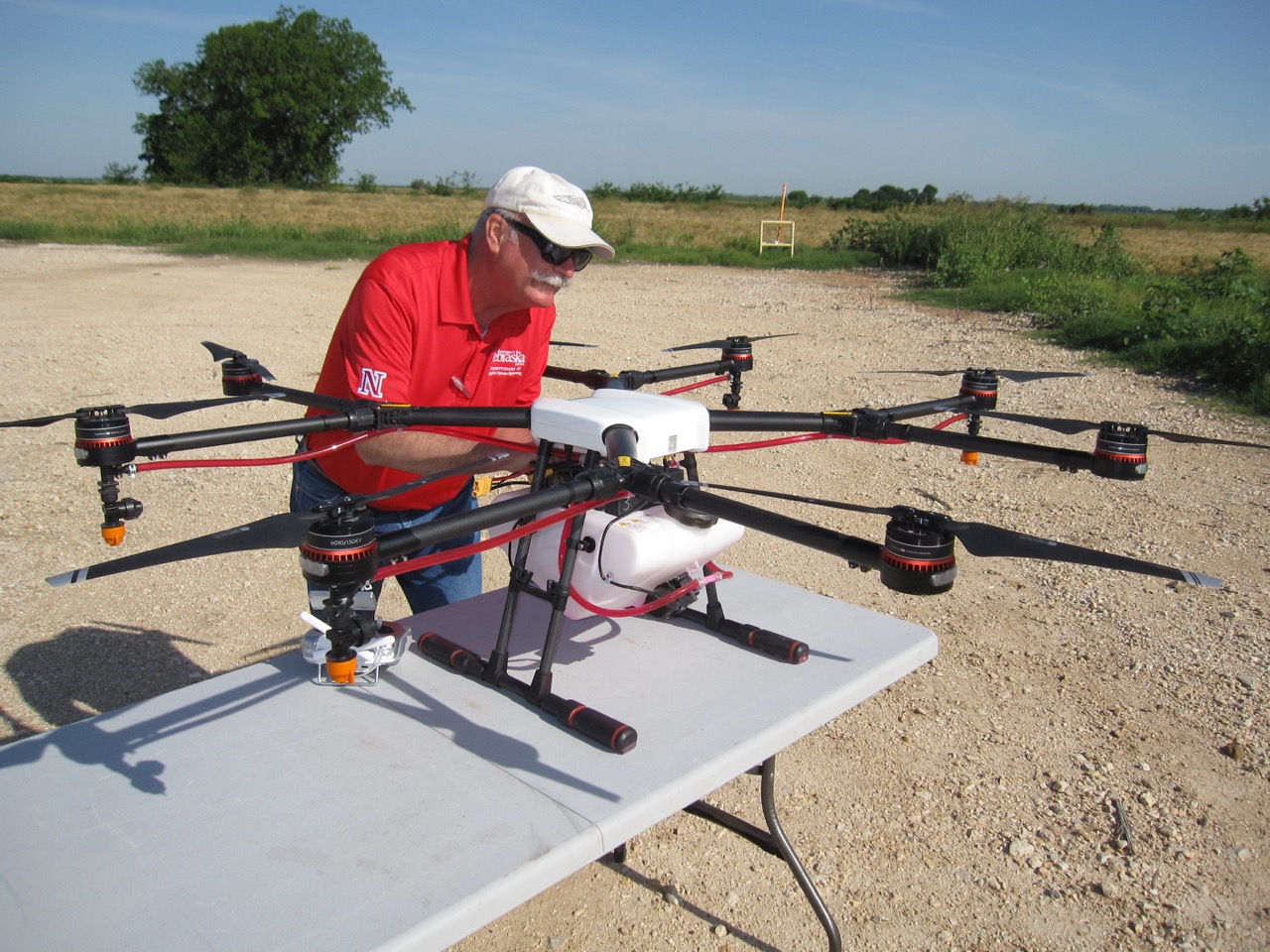
The NU-AIRE unmanned aircraft lab has recently been awarded a Federal Aviation Administration Certificate of Authorization to fly unmanned aircraft that are able to deliver highly precise doses of spray product to crops and livestock. The certificate was awarded on January 2, 2019, and will allow for pursuit of cutting edge research and education, using this new and compelling agricultural technology.
According to Dr. Wayne Woldt, Director of the NU-AIRE lab, the process of applying for Certificate of Authorization (CoA) is time consuming, and involves detailed description of the proposed flight operations, including extensive aeronautical knowledge of unmanned aircraft, the national air space system, FAA Part 107 rules, communication protocols, aviation terminology, and emergency procedures, among many other requirements.
Under current Part 107 unmanned aircraft regulations, it is illegal to "drop stores" from an unmanned aircraft. This includes spraying liquid or dispersing solids from an unmanned aircraft. However, since UNL is a public agency, Dr. Woldt was able to apply, under a provision of the Public Aircraft Statutes, for an authorization to conduct research on "the aerodynamic effects of unmanned aircraft flight profiles on aerial spray application systems."
The NU-AIRE lab is teaming with UNL faculty and the USDA-ARS Aerial Application Technology Research group in College Station, TX, to conduct research using the DJI MG-1 remotely piloted aerial application system, that is currently hangared in the Chase Hall lab. If you are interested in exploring unmanned aerial spray systems, feel free to contact Dr. Wayne Woldt.